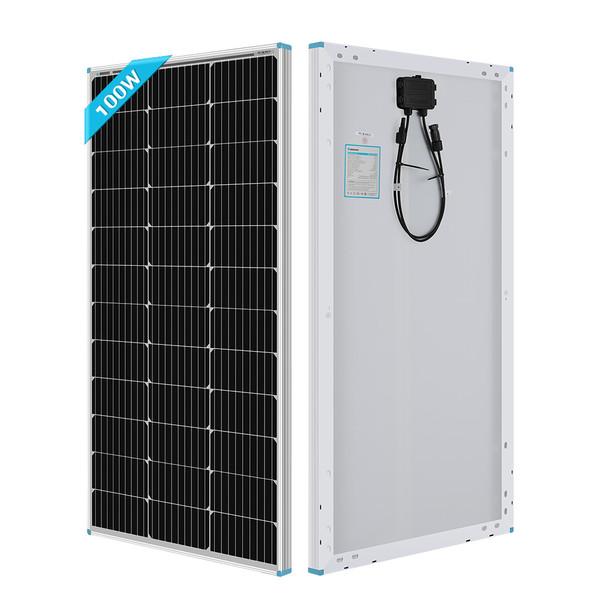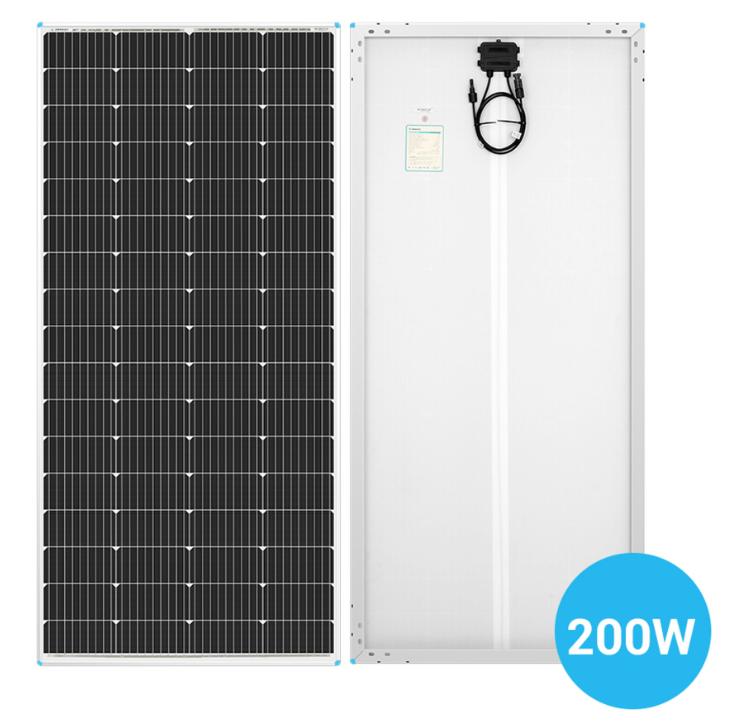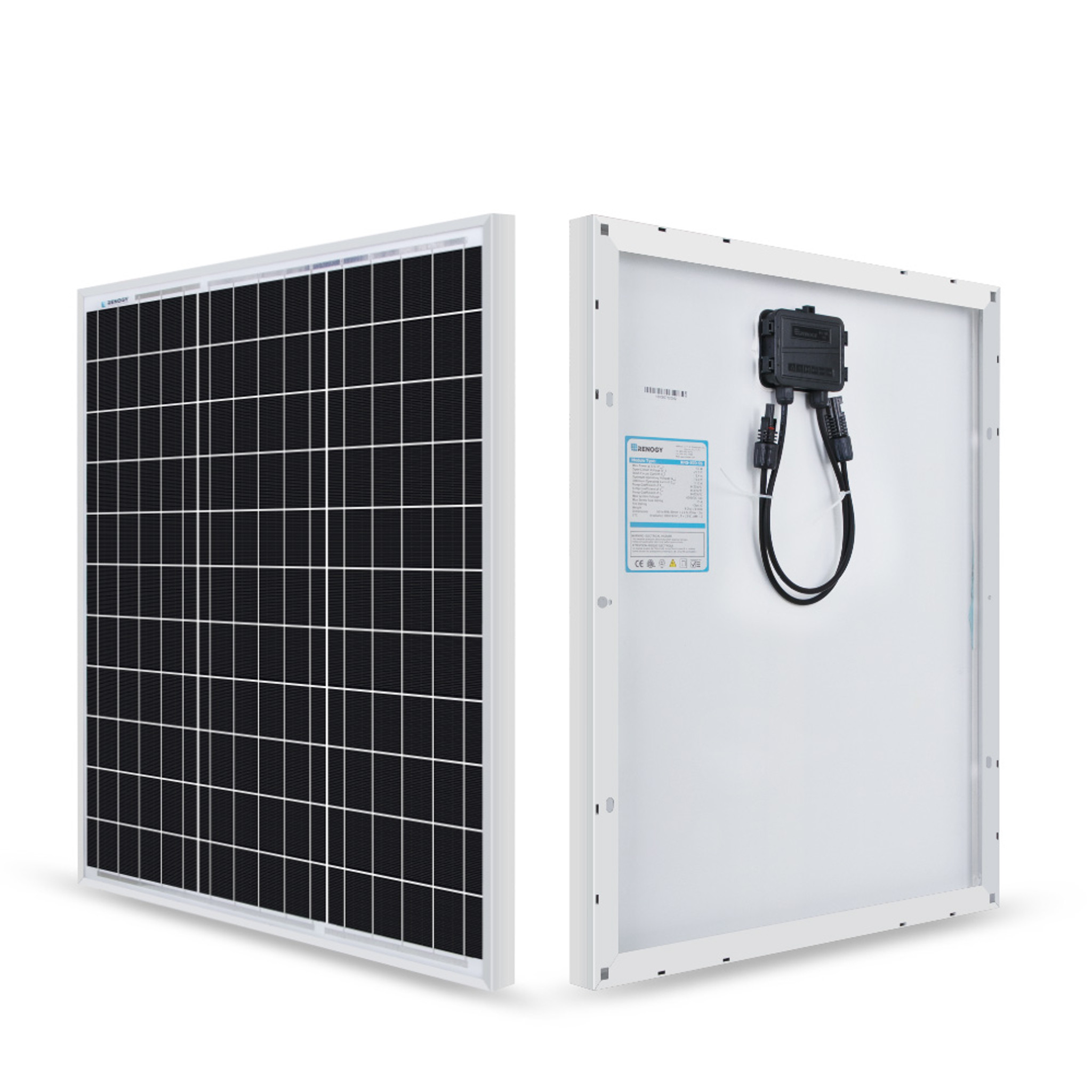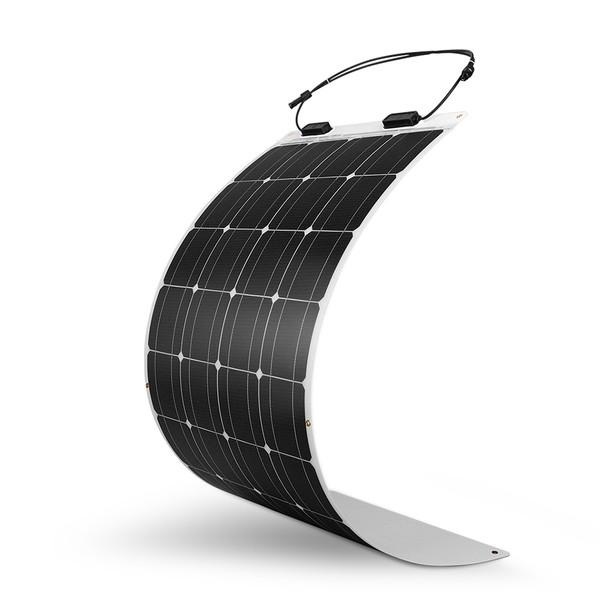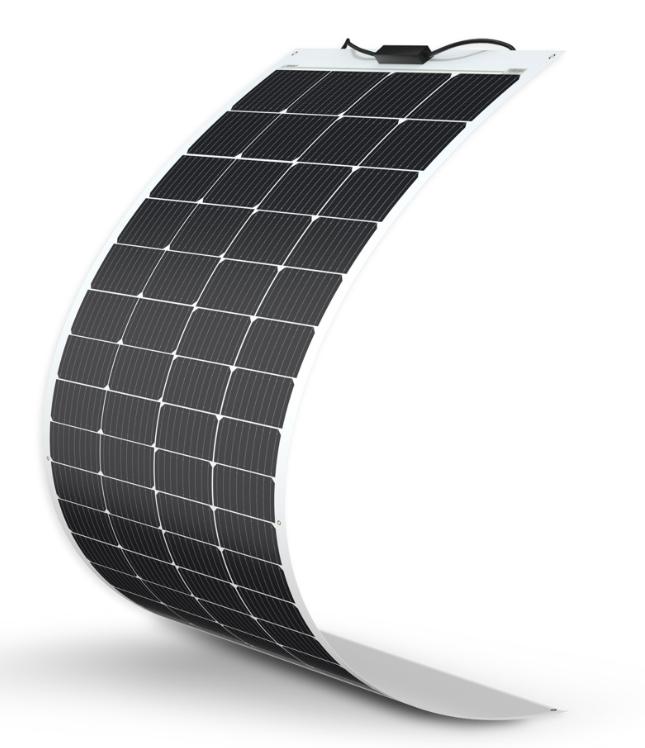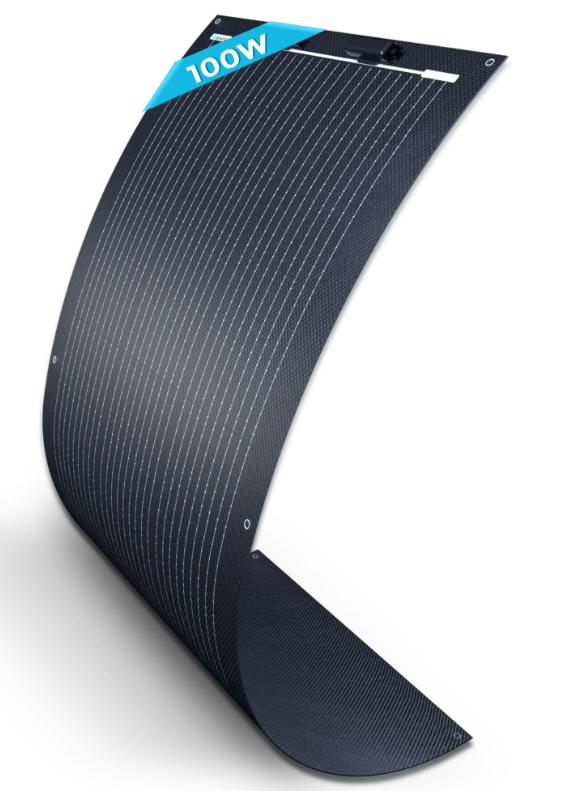Solar Panel for Camper Van| Complete Guide
Solar Panel for Camper Van| Complete Guide
Got a camper van or RV?
Do you want to minimise your carbon footprint while enjoying free, unfettered energy? Installing solar panels for camper vans might just be the perfect solution for you.
Whether you're a full-time van lifer or a weekend warrior, a camper van solar system will bring the convenience of the home right into your RV, trailer, or camper van – wherever you are.
In this article, we look at:
- What Are The Best Solar Panels For Campervans?
- How Much Is It Going To Cost?
- Solar Panel Kit for Campervan
- How to Install Solar Panels For A Campervan Roof?
- How to Make Your Solar Panels More Efficient?
- Frequently Asked Questions (FAQs)
- How many camper van solar panels do we need?
- What size solar panel do I need to power a camper?
- Is a 100W solar panel enough to run a campervan?
What Are The Best Solar Panels For Campervans?
Let’s quickly run through the two major types of solar panel for camper van:
1. Monocrystalline Solar Panels: Monocrystalline solar panels are the most efficient solar panels due to their use of a single, pure piece of silicon. This ultimately gives them an edge over the other panels regarding space utilisation and weight. A 200W monocrystalline solar panel for campervan is comparatively smaller, lighter, and more reliable than a 200W polycrystalline solar panel. They usually come in a dark blue or black colour.
2. Polycrystalline Solar Panels: Polycrystalline solar panels are less efficient and more affordable than monocrystalline solar panels as they're manufactured using a combination of different silicon fragments. They are usually light blue in colour. Renogy no longer sells polycrystalline solar panels.
As you might have guessed, polycrystalline panels are not the ideal solar panel for a campervan installation due to their need for larger installation space and increased weight.
Despite their slightly higher cost, monocrystalline solar panels are the best solar panels for campervans because:
● They are highly efficient
● They are lightweight and can maximise installation space
● They can tolerate low light and shadowy conditions better
Here at Renogy, we have rigid, flexible and folding monocrystalline panels tailored for use with RVs, campervans, and other mobile accommodations.
1. Rigid Monocrystalline Solar Panels
|
100 Watt 12 Volt Monocrystalline Solar Panel |
200 Watt 12 Volt Monocrystalline Solar Panel | 50 Watt 12 Volt Monocrystalline Small Solar Panels |
We have affordable Rigid Monocrystalline Solar Panels for a camper like the Renogy 100W Rigid Monocrystalline Solar Panel or 200W Panel are great choices for installation on campervans with roof racks or similar support structures. Their solid frame gives them additional support that prevents twisting and resists heavier loads and pressure.
2. Flexible Monocrystalline Solar Panels
| 100 Watt 12 Volt Flexible Monocrystalline Solar Panel | 200 Watt 12 Volt Flexible Monocrystalline Solar Panel | 100W Lightweight Monocrystalline Solar Panel |
We also have Flexible Monocrystalline Solar Panels like the Renogy 100 Watt Flexible Solar Panel or 200W Flexible Panels that are lightweight and great for installation on campervans with curved rooftops. These panels can be easily glued directly onto your campervan's roof using VHB tape or Eternabond without drilling or damaging your roof. Just remember to leave a little space between the roof and the panel for ventilation.
3. Folding Solar Suitcase Solar Panels
Lastly, we have Folding Solar Suitcase Solar Panels that are perfect for you if you are not ready to commit to a permanent solar installation on your van's roof. Folding solar suitcases are space efficient and can be easily stored away in the van when not in use. We recommend the 100 Watt Foldable Solar Suitcase or the 200 Watt Foldable Solar Suitcase.
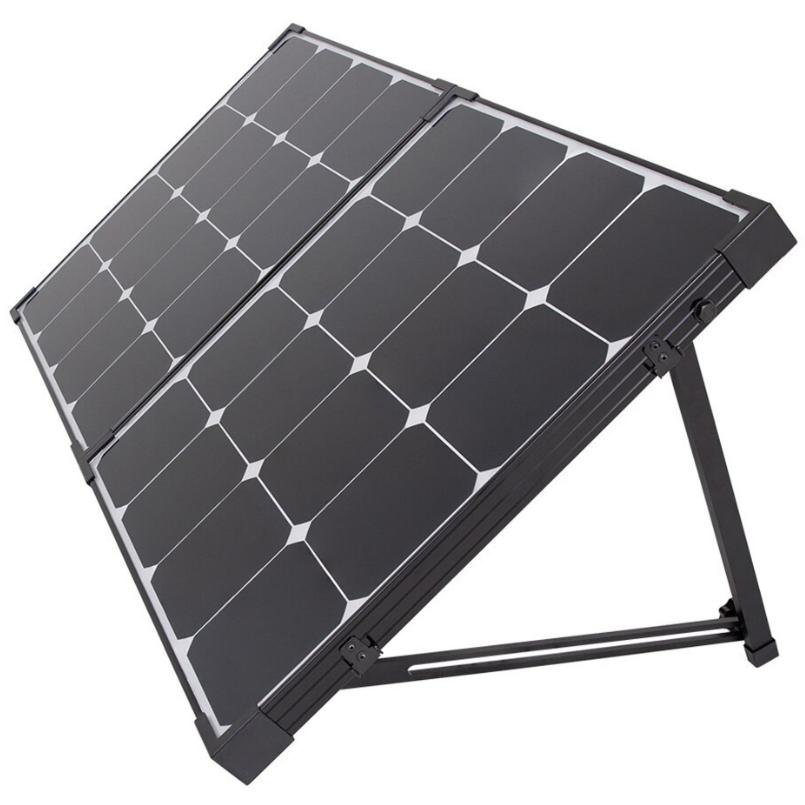
|
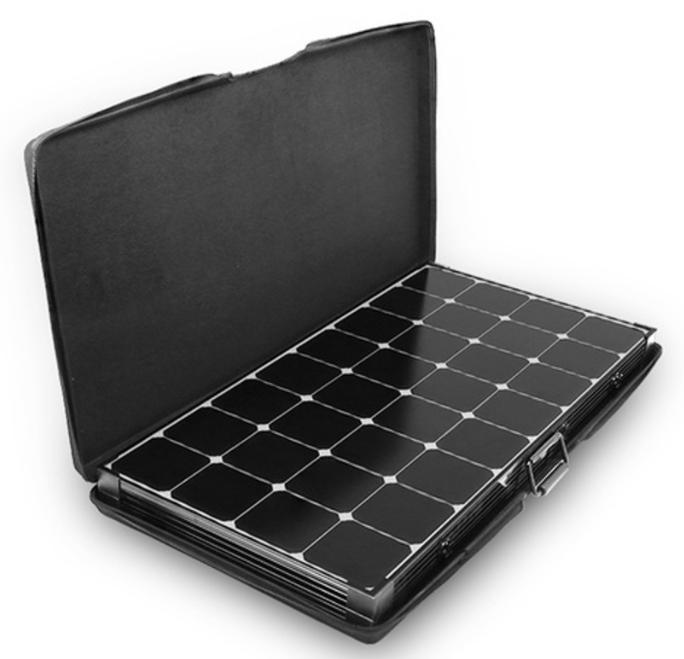
|
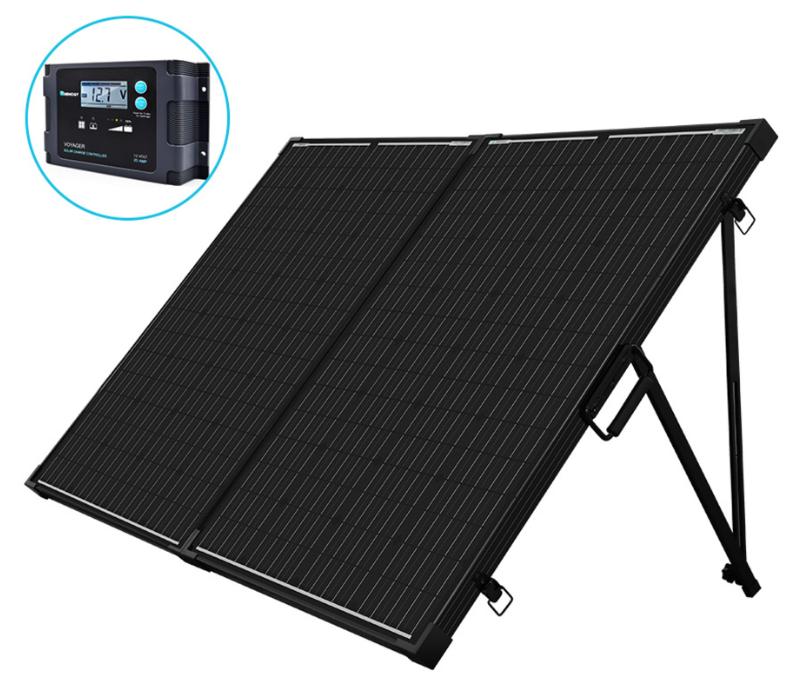
|
| 100W Eclipse Solar Suitcase w/o Controller | 200W Eclipse Solar Suitcase w/o Controller | 200W 12 Volt Foldable Solar Suitcase |
How Much Is It Going To Cost?
Once you've decided to get a solar panel for your camper van, you need to consider how much buying and installing the panels is going to cost.
Solar Panels for a camper van can cost anywhere from less than a hundred pounds to a few hundred pounds. It’s important to remember that if you want a durable, quality solar system, you need to be prepared to invest in the right components from trusted manufacturers.
● Our range of rigid solar panels is one of the most affordable, with an average cost per watt from £0.84 to £1.20 per watt.
● Our line of flexible solar panels is the next most affordable, with a cost per watt ranging approximately from £1.2 to £1.5 per watt.
● Lastly, our line of foldable suitcase solar panels has a cost per watt ranging from £1.34 to £2.0.
*Please note that the above values may change with time. Their purpose is to help you calculate or estimate how much your targeted solar panel system will cost.
Solar Panel Kit for Campervan
If you are planning on DIY installing solar panels onto your campervan, you might have trouble identifying and purchasing all the components you will need for your installation.
The good news is we have ready-made solar panel kits for campervan and RV installations that have everything you need to carry out an installation. From connectors, wires, brackets, and charge controllers, to Bluetooth monitoring modules. Our RV solar kits will help you avoid the hassle of mixing and matching components and accessories. And instead, give you the most compatible solar kits that guarantee the best performance.
You might want to check some of the following RV solar kits:
1. 100 Watt 12 Volt Solar RV Kit
2. 200 Watt 12 Volt Solar RV Kit
3. 12V 50A Dual Battery Charging 200W Solar Flex Bundle
4. 175 Watt 12 Volt Flexible Solar Marine Kit w/ 20A Voyager Waterproof Charge Controller
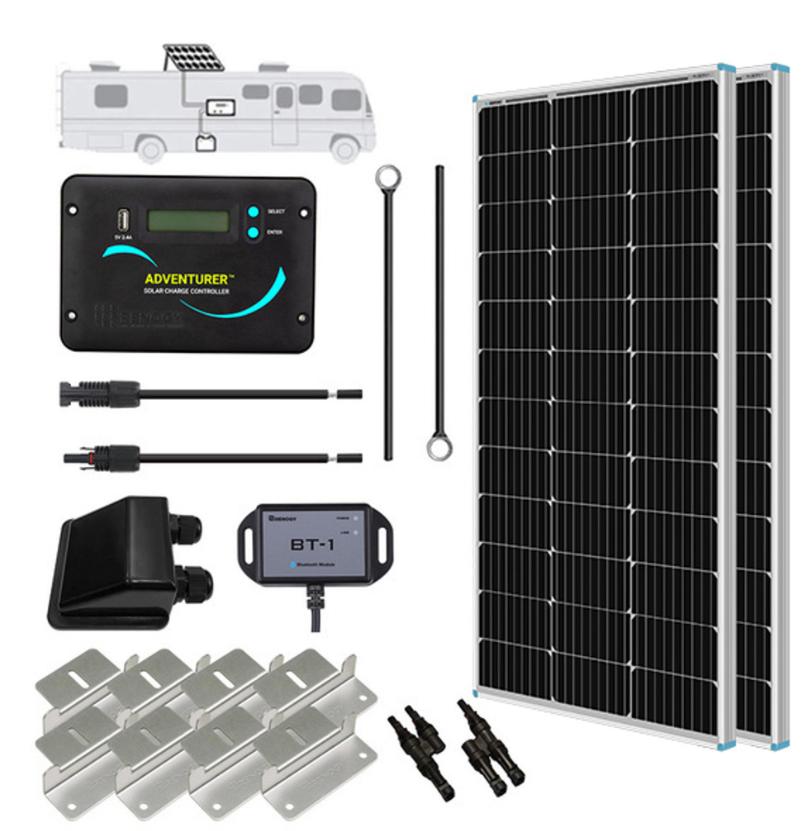
You can also check our full range of solar kits here.
How to Install Solar Panels For A Campervan Roof?
Here's a step-by-step procedure for installing solar panels onto a campervan roof:
Step 1: Install Solar Panel Mounts
The solar panel mounting system or support structures have to be set up. These will support and secure the panels, preventing them from flying off while driving. The whole mounting structure can be tilted to an angle between 18 to 36 degrees to maximise sunlight exposure.
Step 2: Mount the Solar Panels
When the mounts, racks, or other foundational structures are fixed onto the roof, secure the solar panels onto the roof using your preferred method. For example, you can use straight bolts, u-shaped bolts, Z-shaped brackets, drill-less mounts, or industrial adhesives. Make sure your preferred method is strong enough to hold the panels in place.
Step 3: Wire the Solar Panels
Connect the solar panels in a series or parallel connection using the provided MC4 connectors that are used by many types of solar panels. Remember to shut off the camper's electricity supply and take necessary precautions during the wiring process.
Step 4: Install Solar Inverter and Charge Controller
The solar inverter must ideally be mounted near the main panel in a well-ventilated space, while the charge controller connected to solar panels can be in an accessible location close to your batteries.
Step 5: Connect Solar Inverter and Charge Controller to Batteries
Connect the controller and inverter to your battery bank. Make sure your charge controller is connected to the battery first before connecting to your solar panels.
Step 6: Start and Test Solar Panels
Test your system and check if everything works as expected. If it does, congrats, your camper van solar system is ready to go!
If you are still confused about your wiring, check and learn a typical U.K. Campervan Wiring Diagram.
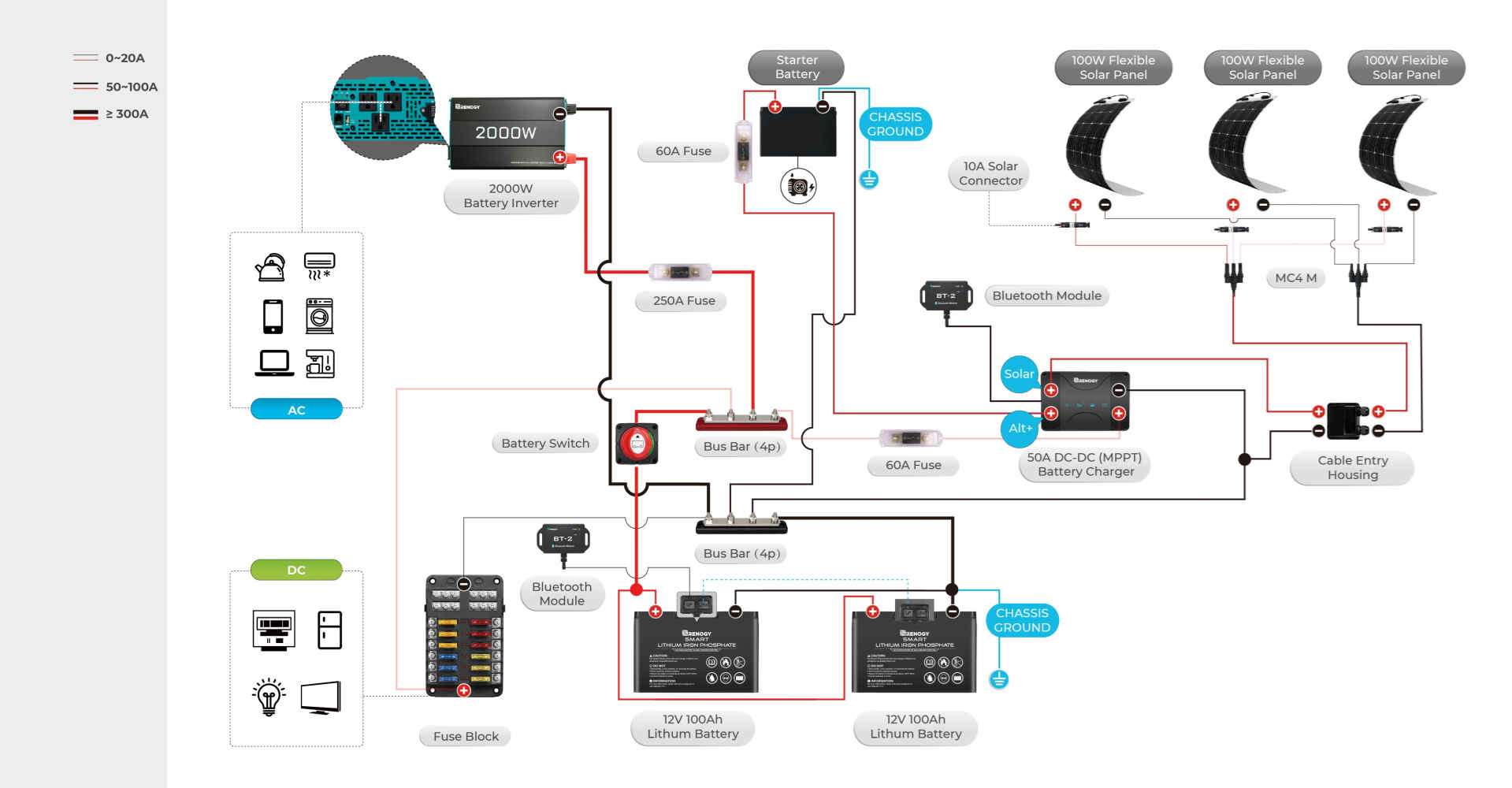
How to Make Your Solar Panels More Efficient?
Congrats, you've installed the solar panels onto your camper van successfully. Here’s what you can do to enhance your solar panels’ performance:
1. Use anti-reflective coatings (in case your solar panel doesn't have such properties), as they allow your cell to absorb more light.
2. Get help from a professional installer, as they have a lot of key insights about the ways of installation that can yield maximum output.
3. Avoid using several devices simultaneously,as they drain out the battery faster.
4. Clean your solar panels regularly to remove dust and debris blocking the sunlight.
5. Check your wiring connections often for tightness and readjust where needed.
Frequently Asked Questions (FAQs)
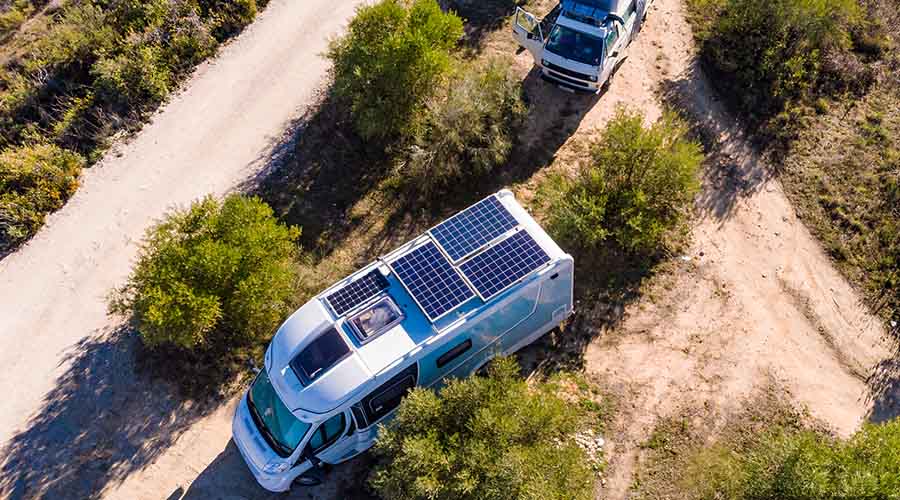
How many camper van solar panels do we need?
You need to calculate the daily power usage of your campervan; once you sort that part out, you can determine the number of solar panels needed by dividing your daily energy usage by the product of the panel's wattage and peak sun hours.Here is a formula for you to calculate: Number of Panels = Daily Energy Usage / (Panel Wattage * Peak Sun Hours).
What size solar panel do I need to power a camper?
You should give preference to monocrystalline panels that are smaller and can fit the most solar panels on your camper van’s rooftop.
Is a 100W solar panel enough to run a campervan?
If your experiments and daily energy usage calculations show that you use less than 400Wh to 500Wh a day, you can barely make do with a single 100W panel. That being said, for most people, a 100W solar panel isn't enough to run a campervan with the appliances that enable a conventional lifestyle on the go.
Related articles:
Efficiency of Solar Panels: Guide for UK Consumers
How Many Solar Panels Do I Need in the UK


